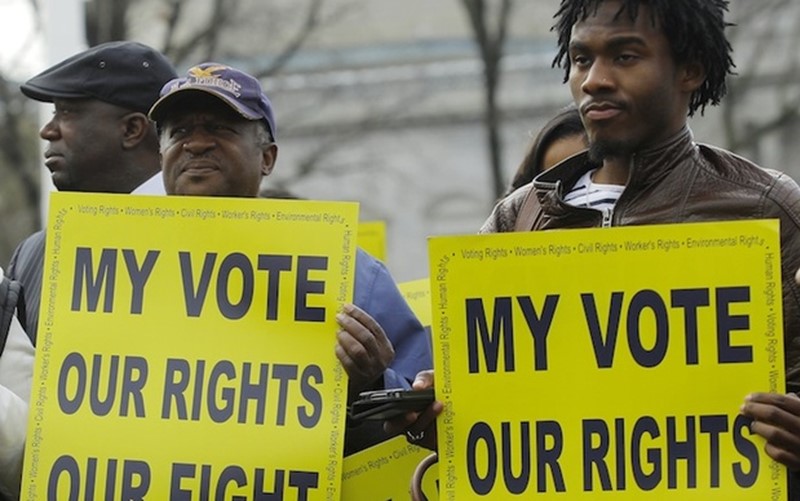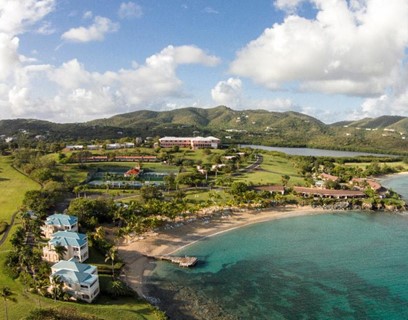
Many persons have, at various times, commented on what it is that mainly puts them off politics. We often hear of a disconnect with politicians from voters who grow tired of empty and repetitive election campaign promises. Then, there is this perception that most politicians are often about self, only being ‘for the people’ during elections season whilst on a quest for votes. It is situations such as these that contribute to what has been termed as voter apathy.
In small island societies, the theatre surrounding politics is often magnified. I have long observed and argued that politics in some of the islands appears to be somewhat of a power grab, and less about bringing lasting solutions to the troubling issues affecting people’s lives. I have often questioned whether some politicians are more invested in satisfying special interest groups, campaign financial supporters, and party loyalists, rather then implementing well thought out policies during their term in office, to spur widespread development for as many people as possible.
It can be argued, that if the common person, who struggles daily to keep themselves and their families afloat, cannot see an improvement in their living condition from what it was at the beginning of a politician’s tenure, to when their term in office ends, then it is justifiable to debate if that politician has failed.
Across the region, it is currently political season for some of the islands. Namely, the islands of Antigua & Barbuda, Dominica, St Kitts/Nevis and Montserrat, all have pending elections.
In Antigua and Barbuda the incumbent leader, Prime Minister Spender says his party is ready to; “Bang dem again….and confine the challengers, the Antigua & Barbuda Labour Party (ABLP) to history.”
In St Kitts/Nevis the incumbent leader, Prime Minister Douglas’ rhetoric has amused, as well as it has been filled with clout and glamour. Douglas has stated boldly that he is “ten men in one!”
Meanwhile, on Montserrat, the incumbent leader Premier Meade, who once dubbed himself as a suicidal politician, says that his Movement for Change & Prosperity (MCAP) team is the team that should be kept to “fulfill the dream.”
In Dominica, the incumbent leader Prime Minister Skerritt has stated; “Young people are saying to us in Dominica that five more years for Skerrit, five more years for Labour and five more years for them here in Dominica.”
All the language being delivered during political season 2014 is confident language; so designed to project an image of invincibility to the voters heading towards voting day.
What I have found noticeable is that the level of toxicity injected into these island’s political climate is often verbal, not the indiscriminate violence that is a feature of some other country’s politics that over-shadows the real concerns of the people.
Travelling across the region, I have been at pains to understand the political culture. Where, from speaking to locals in various islands, a common theme pervades. It would appear that individuals who do not support the party in power, or those that are vocal with their positions on the issues that are contrary to the political propaganda of the day, are victimised by those who have power , with access to economic mobility sometimes even threatened or stagnated.
Many politicians often say the things that are deemed necessary to win an election, delivering rhetoric that they deem the voters want to hear. The practice of delivering promises on the platform that are unrealistic and fiscally irresponsible is a failure of electioneering on two fronts in my view. It gives voters a false sense of security, thinking that their candidate of choice can make good on all they have assured they will deliver once elected.
Additionally, this is where the role of the media in the entire election process becomes paramount. If politicians are not challenged on their fanciful language, broken down so that voters can understand what exactly is at play, many would march straight into office without any semblance of a challenge to their claims. A strong media contingent I feel is crucial to democratic electioneering. Sound bites and sassy slogans that sound great to the public at large ought to endure a process of being broken down and analysed, to conclude if anything substantial, if at all, is being communicated.
My political ideology is coined from a basic premise; which is the advancement of the human condition. Political policy should be weighed against its impact on the lives of citizens. Does a particular policy cause harmful setbacks? Does it benefit a select crowd or are policies thought out properly and consulted widely so as to impact positively as wide a cross section as possible?
From observation, it would appear that the questioning of policy often ends up with very skewed interpretations from party supporters and the political candidates themselves. Views expressed with no basis of personality bias are mirrored from that perspective. The essence of debating the issue at hand becomes lost in the assumption that the person raising the questions must be against the politician or party being questioned. If we look at the trend of politics throughout the region, we find this type of divisive politics almost commonplace throughout. This is where politicians again have failed, lowering the bar in that they seek to stifle an open debate on the issues, rather than fostering dialogue and allowing all ideas to contend. Voters must be mindful of politicians with such tendencies. They are dangerous.
The democracies across the Eastern Caribbean are new democracies, with the exception of Haiti that fought for and won its emancipation from the tyranny of slavery through the bravery of Toussaint L’Overture and his comrades. The battle for Haiti, also known as the battle of Vertières, ended in French defeat in 1803, and saw Haiti becoming an independent country in 1804. There is no democracy in the Caribbean that boasts a century of independence outside of Haiti.
Being released from the trappings of servitude under European landlords and economic pillagers, the people of the Caribbean were thrust into a wider world where trade, finance, economics, infrastructure development, educational planning, workforce readiness and ongoing training, plus a host of other primary concerns were thrust on our leaders to take forward on behalf of the people of the region.
There has been significant progress I agree, as there are regional institutions across a wide spectrum that have made contributions to the Caribbean’s development. But the question still lays restless on mind, wondering if this current crop of political leaders have done enough to advance the case of development for the people of the region?
I look today and see a Caribbean where the spear of politics and the desire to maintain power at all costs by some leaders has seen development, but also stagnation has crept in equally. Innovation and building competitive economies has suffered due to political waste. Responding to the rapid developments in the global economy has seen the region lag and in some ways now playing a game of catch-up. Do we lack leaders who are truly about country first?
Former pioneering leaders such as Eric Williams of Trinidad & Tobago, VC Bird of Antigua and Barbuda, Dame Eugenia Charles of Dominica, John Compton of St Lucia, W H Bramble of Montserrat, Robert Llewellyn Bradshaw of St Kitts and Nevis - these are names that one still hears of, even in today’s political climate with a new crop of leaders on display.
Where are the great leaders I ask with the transformational leadership via their policies and programmes to change the lives of citizens towards the better for generations to come, outside of an immediate, short-term impact? Do we have a problem of visionary leadership across the region?
Note: Jeevan Robinson is Founder & Editor-in-Chief of MNI Alive; a global Caribbean Marketing, News & Information (MNI) media outlet. He can be reached at jeevan@mnialive.com


